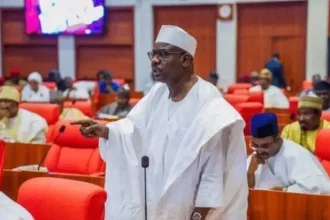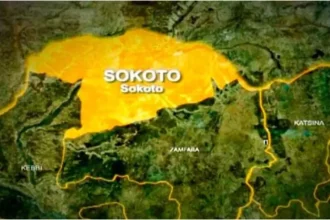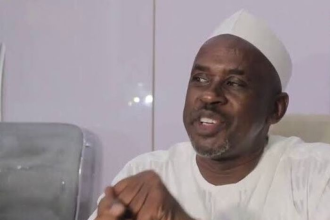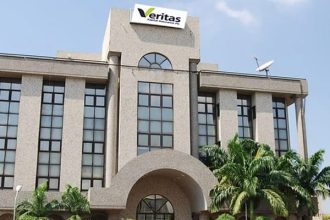The new Kaduna State Emergency Medical Services and Ambulance System (KADSEMSAS) will ensure that ambulances are despatched in response to the kind of urgency required by the designated Call Centres in various centres of the State. It will, therefore, be backed by a round-the-clock call and dispatch system and trained medical teams on standby.
On the other hand, the rural dwellers in the State have their own medical emeregency response facility, known as RESMAT.
Both facilities, with active participation of private medical services providers, are designed to drastically cut preventable deaths caused by slow response, for underserved and vulnerable persons in rural and urban areas — especially in maternal, accident, and other critical cases.
The initiative marks a major leap forward in making lifesaving care accessible to both urban residents and rural communities.
Governor Uba Sani, who launched the scheme on Monday in Kaduna, described KADSEMSAS as a lifeline for the people, saying it will ensure that no citizen dies because emergency help failed to arrive on time. He noted that emergencies are unpredictable, but survival depends on speed, preparedness, and coordination — the very gaps KADSEMSAS is built to close.
A unique feature of the new system, according to him, is the integration of the State Rural Emergency Medical Services and Maternal Transport Services, aimed at reaching hard-to-access villages where distance and terrain often stand between patients and survival.
The governor stressed that this deliberate step ensures no one is left behind in the quest to save lives, whether in cities or remote communities.
He explained that KADSEMSAS contributes directly to the goals of the Basic Health Care Provision Fund (BHCPF), particularly by expanding access to emergency maternal and neonatal services in underserved areas. It also aligns with the World Bank’s priorities on Universal Health Coverage (UHC) by strengthening resilience, addressing service delivery gaps, and promoting effective partnerships across public, private, and community levels.
Reeling out broader healthcare reforms under his administration, the governor listed the strengthening of the Kaduna State Contributory Health Management Authority (KADCHMA) to expand insurance coverage for the poor and vulnerable; legislative frameworks such as the Primary Health Care Under One Roof (PHCUOR) Policy and the State Healthcare Waste Management Policy; revitalization of primary health centres with medicines and skilled workers; and prioritization of maternal, newborn, and child health services.
In a major boost for health workforce morale, Governor Sani reminded stakeholders that his government has approved and begun implementing the 2024 CONMESS and CONHESS salary structures, a historic move to motivate doctors, nurses, pharmacists, and other professionals who deliver healthcare across the state.
He noted that no health system can claim completeness without an effective emergency response system, stressing that with KADSEMSAS, Kaduna has taken a pioneering role in Nigeria by offering citizens reassurance that their lives are valued and will be protected in their most vulnerable moments.
The governor expressed gratitude to the Kaduna State House of Assembly, the Honourable Commissioner of Health and her team, development partners, health professionals, and community leaders for their roles in making the initiative a reality.
“Today’s launch is a promise fulfilled and a renewed commitment to invest in systems, policies, and innovations that secure the health of every Kaduna citizen. But for this system to succeed, we must all protect it, support it, and sustain it as a legacy of service, compassion, and resilience,” Governor Sani said.
With that, he formally flagged off the Kaduna State Emergency Medical Services and Ambulance System (KADSEMSAS), including the State Rural Emergency Medical and Maternal Transport Services.


















